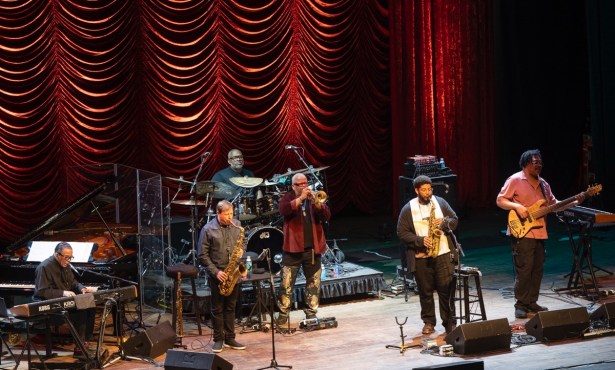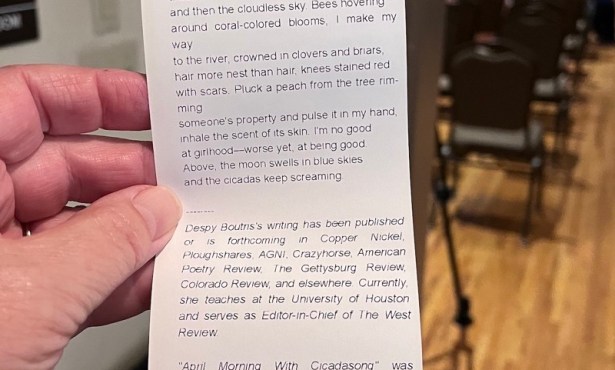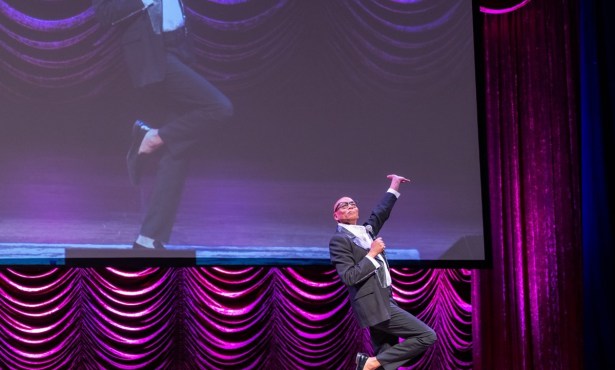Review: The Weeknd at the Santa Barbara Bowl
Abel Tesfaye's Disturbing Vision, Fully Realized on Saturday, September 14

After The Weeknd’s performance at the Santa Barbara Bowl on September 14 it was entirely obvious that, for more than two years, Abel Tesfaye has been reminded of his brilliance. Being crowned “the best musical talent since Michael Jackson” would probably make anyone a little arrogant, but in this case, The Weeknd’s enhanced access and ego have only served to engorge the problematic aspects of his music that had previously been overlooked — namely, disgusting portrayals of women and sex.
To provide a bit of context, in late 2010 a young Toronto vocalist of Ethiopian descent named Abel Tesfaye uploaded a handful of songs to YouTube under the moniker “The Weeknd.” In 2011, Tesfaye went on to record a trio of mixtapes (read: albums released for free online). With each release The Weeknd’s exposure grew, and before long Abel was enlisted into the ranks of the new underground R&B armada, joining the likes of Frank Ocean and How To Dress Well.
Upon first listen, The Weeknd’s voice felt like a revolution. Unflinching and sordid lyrics are easy to glaze over when they’re delivered in a style that’s drawn countless comparisons to The King of Pop — powerful enough to carry any bass-laden ballad, but delicate and complex when those gritty beats are replaced by an acoustic guitar, or nothing at all.
Now, in 2013, the Weeknd’s résumé of collaborations reads like a “who’s-who” list of hip-hop icons and internet darlings (most famously, fellow Toronto-ite Drake). And that trio of mixtapes? It’s been repackaged and released onto the marketplace as The Trilogy, an album that precedes this month’s first proper studio release, Kissland.
But both Kissland and The Weeknd’s performance at the Santa Barbara Bowl are/were devoid of nuance. The explicit nature of The Weeknd’s music felt permissible in 2011, when Tesfaye’s identity remained shrouded in mystery. His mixtapes were all firmly grounded — pseudo-confessions of a young man who was conflicted, earnest, and somewhat anonymous. But there’s nothing anonymous about The Weeknd anymore, as evidenced by the portion of Saturday’s performance in which eight giant monitors displayed separate perspectives of his face. Later in the evening, those same monitors were used to simulate a brothel, with female silhouettes dancing and neon signs advertising “Sex” and “Open All Night.” Later still, audiences were “treated” to images of two topless Asian women licking each other and kissing.
“I just wanted to hear him f***ing sing,” said one unsettled member of the audience.
Obviously, it takes incredible arrogance to force soft-core porn on an audience without a shred of irony; perhaps the kind of arrogance that’s fostered by years of unflinching praise and adoration. But while it’s tempting to believe that success has changed The Weeknd, that’s probably not the case. Success and fame have simply broadened the audience for Tesfaye’s troubling vision.



